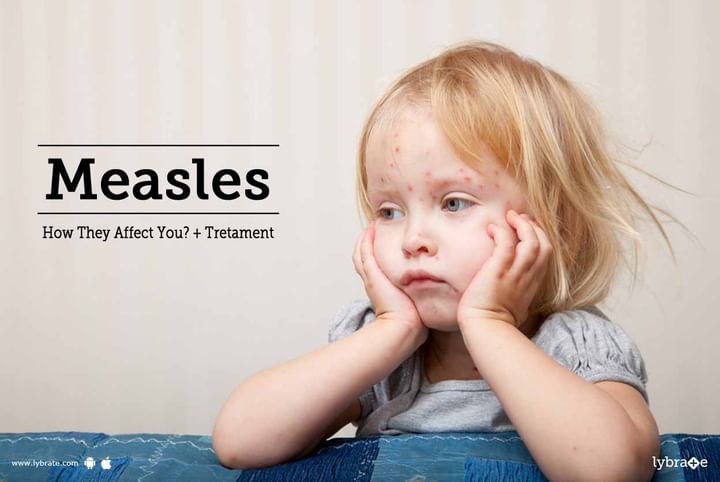Measles - How They Affect You? + Treatment
Measles or rubeola as it is also known is one of the leading causes of children’s death around the world. This viral infection is communicable through the air and spreads through contact with infected saliva and mucus. Thus, sharing cutlery or glassware with an infected person can increase a person’s risk of suffering from this disease. Thankfully measles can be prevented through vaccination known as MMR. This vaccination is given to infants and also protects them against mumps, rubella and chickenpox. The first dose of MMR vaccination is given when the child is about 1 year old and a booster dose is repeated when the child is 4-6 years old.
One of the most characteristic symptoms of measles is a reddish rash that begins inside the mouth and later erupts all over the body. This is usually preceded by a high fever, cold, cough, sore throat and swelling of the lymph nodes. Fatigue, diarrhoea and redness of the eyes are other symptoms of this disease. Measles symptoms are not apparent the moment a person is exposed to the virus. It can take 7 to 18 days for symptoms to become visible after catching the infection, this is known as the incubation period. Measles affects adults is a more severe way than children.
Children and adults with a weak immune system are highly susceptible to complications associated with measles. In some cases, it can lead to life threatening conditions, such as pneumonia and encephalitis or inflammation of the brain. Other complications associated with measles include ear infections, bronchitis, blindness and a sharp fall in platelet count. A pregnant woman suffering from measles also has a high risk of miscarrying the baby or preterm labour.
There is no definitive form of treating measles and doctors typically address the symptoms while prescribing medication. In most cases, the symptoms and the virus should disappear in two to three weeks. Some of the common forms of medicine prescribed to deal with measles are:
- Medication to relieve fever
- Antibiotics to prevent or treat accompanying bacterial infections
- Vitamin A supplements to reduce the severity of measles symptoms
- Pain relievers to deal with muscle pains
In addition, the patient needs plenty of rest and fluids to strengthen the immune system. The use of a humidifier can also help treat a sore throat and cough. Bright lights can aggravate headaches and irritation and hence should be avoided. Hence, avoid watching television and activities like reading. If you wish to discuss about any specific problem, you can consult a pediatrician.



+1.svg)
